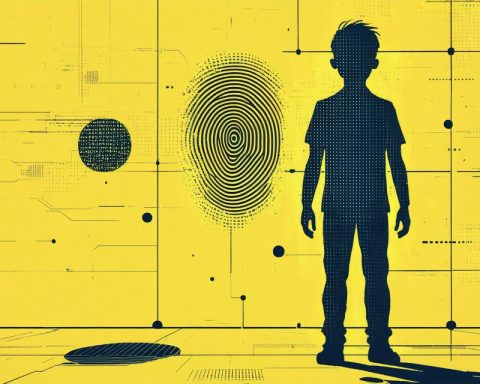In a dramatic turn of events on October 29, the Bureau of Economic Security took decisive action by seizing smartphones from several key figures linked to a high-profile corruption case. Among those affected was Evhen Dykan, a member of the Poltava City Council, along with others implicated in the case. Some individuals chose not to cooperate fully, refusing to provide access codes or attend court proceedings.
The Kyiv District Court authorized the confiscation of these valuable “iPhones” based on the bureau’s requests. Among the devices were an iPhone 11 retrieved during a home search, and these gadgets have now become crucial evidence in the ongoing investigation into a suspected embezzlement scheme involving drone purchases.
On the same day, another suspect’s residence was searched, leading to the discovery of a locked iPhone 13 Pro Max. Investigators faced challenges in accessing the device due to encryption, compounded by the owner’s refusal to divulge the access code. Despite an attorney’s pleas to prevent the seizure, the smartphone was taken.
Further raids took place, including a search involving a Tesla Model S, where authorities found two more iPhones, potentially linked to Dykan. During the operation, Dykan faced an unexpected medical condition and was transported to a hospital.
In an additional search, law enforcement confiscated an iPhone 15 from a fourth suspect, noting its relevance to the corruption charges they are pursuing. This incident ties back to previous reports on an expensive drone procurement contract that triggered this investigation into alleged mismanagement of public funds.
The Unseen Impacts of Digital Evidence Seizures in High-Profile Corruption Cases
In today’s digital age, smartphones are not just communication tools; they are repositories of personal and professional data. The recent confiscation of iPhones as part of a high-profile corruption investigation highlights the growing role of digital evidence in legal proceedings. While the story of corrupt practices and subsequent legal interventions is not new, the critical consequences of such actions on individuals, communities, and broader national dynamics are worth exploring.
Impact on Individuals and Privacy Concerns
When authorities seize smartphones, they gain access to a treasure trove of information, ranging from emails and text messages to location data and financial transactions. This raises significant privacy concerns. For individuals like Evhen Dykan, losing control over personal devices can feel intrusive and violating.
Moreover, the refusal of suspects to divulge passcodes illustrates a broader debate about privacy vs. security. Should individuals be compelled to unlock personal devices? The courts often grapple with this question, balancing the need for evidence against the right to personal privacy.
Community Trust in Law Enforcement
Operations like these can affect public trust in law enforcement. On one hand, successful investigations can reinforce the perception of a robust and fair legal system. On the other hand, heavy-handed tactics might lead to criticism and distrust, especially if such actions are perceived as politically motivated or unjust.
If communities believe that only certain individuals or political factions are targeted, it can lead to increased polarization and decrease trust in governmental institutions.
Technological Challenges and Legal Controversies
The issue of encryption further complicates matters. Many modern smartphones have strong security measures that even manufacturers cannot easily bypass. This impasses authorities and might slow down investigations. High-profile cases like these reignite debates over encryption and whether tech companies should provide backdoor access to law enforcement.
Advantages and Disadvantages of Digital Seizures
Advantages:
– Thorough Investigation: Allows authorities to gather comprehensive evidence that can potentially clarify complex corruption cases.
– Precedent Setting: Helps set legal precedents on the use of digital evidence in courtrooms, which can streamline future cases.
Disadvantages:
– Privacy Violations: Raises ethical issues about the extent of surveillance and data collection.
– Technological Barriers: Investigators may struggle with devices they cannot access, delaying justice.
– Potential Misuse: Risk of data leaks or misuse of personal information by authorities.
How Does This Affect Governance?
Such investigations can have far-reaching implications for governance. By exposing corruption, there’s potential to increase accountability among public officials and deter future misconduct. However, there are risks that investigations get mired in politics, reducing their effectiveness.
Related Links and Further Reading
For those interested in exploring further about corruption and digital privacy:
– BBC
– Reuters
– CNBC
Ultimately, these high-profile seizures bring to the fore a conversation about the modern interplay between privacy, technology, and justice. As the world becomes increasingly digital, these challenges will only grow, prompting societies to reevaluate their priorities and legal frameworks.



















